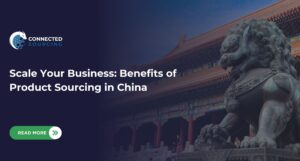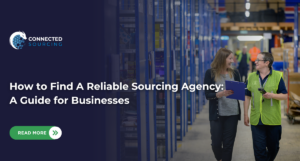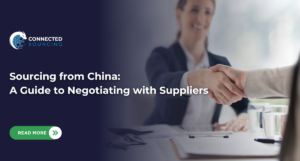
Businesses can benefit in many ways from having a sourcing specialist on their team. They provide insights and strategic sourcing services that can improve your company’s efficiency and finances – allowing you to stay ahead of your competitors.
As manufacturing processes become more complex and competitive, companies rely more on these professionals to remain relevant and profitable in an ever-evolving marketplace. Without their expertise, businesses can find themselves easily stuck with subpar products or services and overpaying for them even if they don’t meet their expectations.
To know more about what is a sourcing specialist, this blog post will explore more on their job description, the benefits of hiring them to your team, and why they play a vital role in helping businesses achieve success.
What is a Sourcing Specialist?
Specializing in analyzing, organizing, and optimizing the sourcing process of an organization in the most cost-effective way, sourcing specialists can provide invaluable assistance to both procurement and recruitment departments. They can help identify areas where efficiencies can be achieved, recommend best practices, and implement solutions that result in significant cost savings.
-
- Procurement: Sourcing specialists in this area are responsible for establishing relationships with suppliers, negotiating advantageous deals, and crafting contracts to ensure that the business gets the best terms possible. They also develop strategies to maximize your company’s potential and streamline processes.
- Recruitment: The primary purpose of such specialists is to locate, contact, and evaluate potential candidates in order to determine if they are the right fit for the job. They must have an eye for detail and be well-versed in the organization’s hiring requirements.
Difference of Procurement and Sourcing Specialists
Both procurement and sourcing specialists are essential in maintaining and providing an effective supply chain to customers. Since they’re somewhat related, many are confused about their responsibilities and use the terms interchangeably.
However, there are some key differences between the two which will be discussed more thoroughly below.
What Does a Sourcing Specialist Do?
Prior to the procurement process, the common sourcing specialist job description and stages include
1. Identifying the company’s purchasing needs
The very first step in the sourcing process is to assess the company’s needs for more efficient operation. This requires evaluating the organization’s current budget, analyzing spending patterns, and brainstorming ways to reduce costs.
Furthermore, it is important to consider potential suppliers and the quality of their products or services when determining the best approach for the company’s needs.
2. Assessing the marketplace
This step typically involves researching the direct cause of a business cost which can include raw material, labor hours, machine running costs, and transportation. It is also during this stage when sourcing specialists need to:
-
- analyze the current market trends
- evaluate the competition
- identify potential key suppliers
- assess the opportunities and risks involved in the marketplace
3. Evaluating potential suppliers
The third step is identifying and assessing potential suppliers that can meet the specifications of the business’ purchasing needs. When looking for possible suppliers, it’s important to ask yourself the following in order to find the perfect one for your organization:
-
- Does the price match the quality of the product or service?
- How long does the delivery time take?
- What is the order capacity of the supplier?
- What payment terms do they accept?
- Do they have CSR credentials?
It’s best if you can identify more than one supplier that can meet the business’ criteria so you’ll have another option in case the first one doesn’t work out. Additionally, be sure to research the supplier thoroughly and check their previous reviews to ensure they will be a reliable and reputable partner for your business.
4. Selecting a supplier
When selecting a supplier, sourcing specialists have to evaluate the following documents so they can compare potential suppliers and finalize the selection process:
-
- Request for Information: RFIs are documents that include general information about the products, services, and suppliers.
- Request for Proposal: RFP is a questionnaire submitted to qualified suppliers in order to understand their services more and invite them to submit a proposal. This is to further help the organization compare and come up with an informed decision.
- Request for Quote: RFQ involves asking suppliers to provide their price quotation.
After these have been evaluated and the best supplier has been selected, it’s time to create contracts to be reviewed and signed by both parties.
5. Onboarding and managing supplier relationships
Lastly, sourcing specialists have to ensure that suppliers are onboarded properly for a more streamlined process.
They also have to manage supplier relationships to ensure a great collaboration between the organization and the supplier in order to maintain a healthy and mutually beneficial relationship.
What Does a Procurement Specialist Do?
The procurement process will only start once supplier contracts have been signed. This process typically involves the following steps
1. Assessing purchase requisition
Once a deal’s been made with a supplier, procurement specialists will have to review the purchase requisition which is a request created by an employee to procure the goods the company will need.
This will have to include all necessary information and valid reasons before it can be approved.
2. Submission of purchase order
After approval of the purchase requisition, the next step is to create a purchase order to be sent to the supplier. This consists of the outline of goods or services needed and the agreed-upon prices and quantity during the sourcing process.
3. Tracking deadlines
The procurement specialist will then have to monitor deadlines and expedite the process by constantly communicating with the supplier and asking for updates to make sure that qualities are met and they’re on track with the schedule.
4. Receiving products
Once the orders have been delivered, the procurement specialist will have to receive and check the goods to ensure they meet the standards as stated in the purchase order.
5. Invoice processing
Specialists will inspect the invoice from the supplier, the purchase order, and order receipts to further confirm that there’s no anomaly with the orders. This process is crucial to make sure that all orders have been received and to avoid overspending.
6. Ensuring payment
If no issue is found with the order, the final step is to make sure that the accounting team pays the supplier according to the predetermined payment terms.
4 Benefits of Hiring a Sourcing Specialist
Still undecided about whether you should hire or skip a sourcing specialist? To help you decide, here are the advantages of having a sourcing specialist for your organization.
Improve budgeting process
If your organization is struggling to stay within budget, hiring a sourcing specialist may be the key to achieving desired outcomes. With their extensive experience in researching, locating products, and negotiating contracts with the lowest prices, sourcing specialists can help maximize your business’ spending power.
By having them oversee and manage your budget, you can ensure that your budgeting processes are both efficient and effective.
Access to premium suppliers and manufacturers
Another advantage of having a sourcing specialist on the team is that they can offer you more potential suppliers that you may have never reached on your own.
Aside from researching suppliers, they can also help you compare and pinpoint the most efficient option since they have deep knowledge of the industry.
Develop long-term relationships with suppliers
A sourcing specialist not only helps you select the best supplier for your organization but also helps you maintain a strong and successful relationship with them.
This can prove to be incredibly beneficial in the long run as you can leverage an established relationship when you need their services again in the future.
Reduce risk exposure
Unfortunately, there are a number of risks that can be associated with supply chain management that can have serious ramifications on your business.
By hiring a specialist, they can mitigate these risks by thoroughly looking into your organization’s spending activities and creating sourcing strategies that can protect your business from unnecessary risks.
Recruiting Sourcing Specialist for Your Organization
Having a sourcing specialist on your team can provide you with valuable insights into how best to source goods and services for your company. This allows you to take advantage of the benefits of their services while avoiding costly mistakes along the way.





















